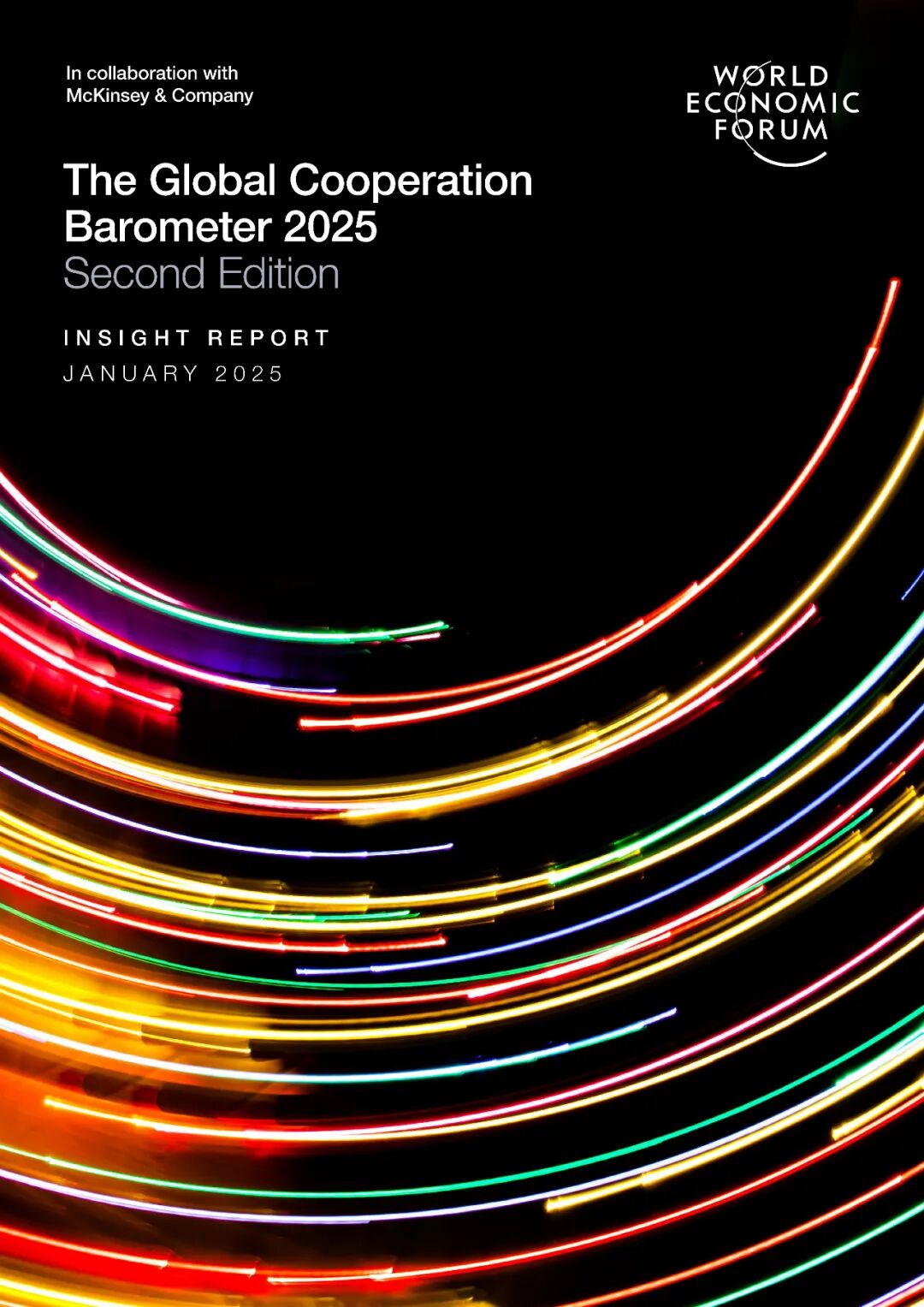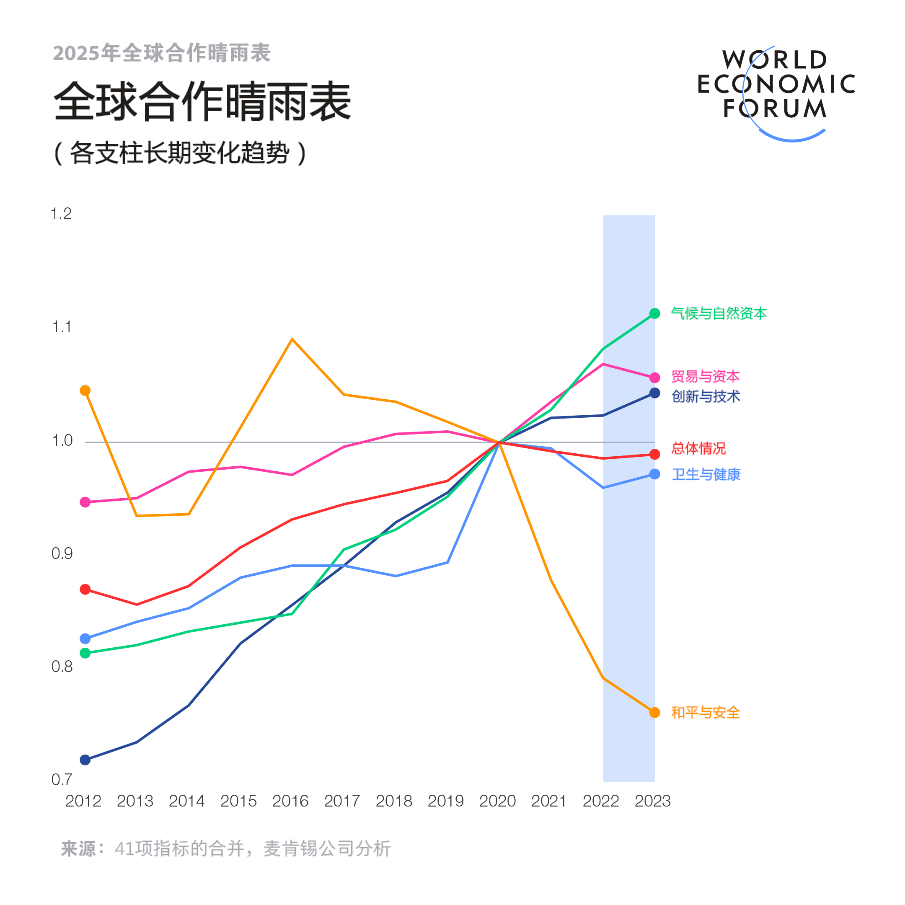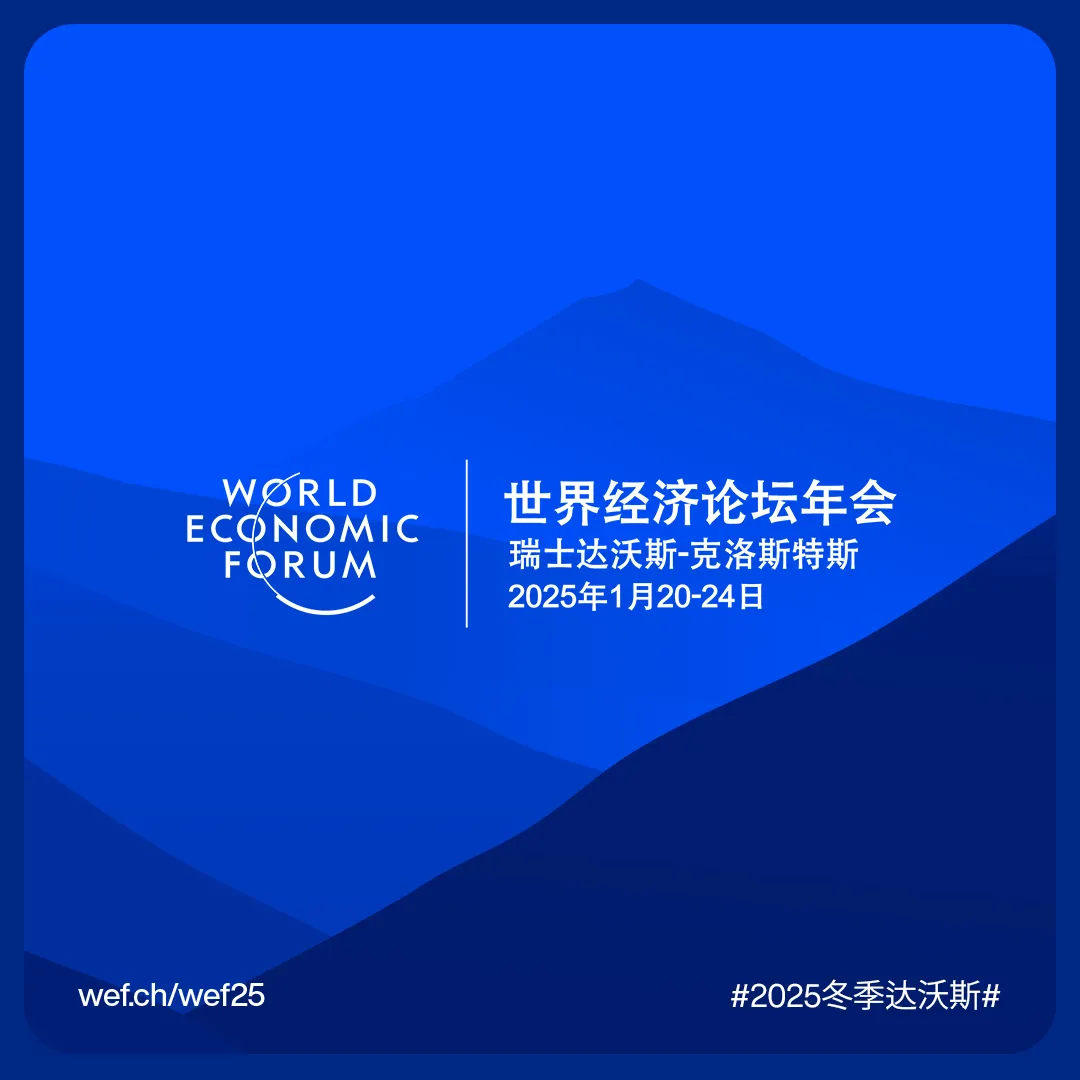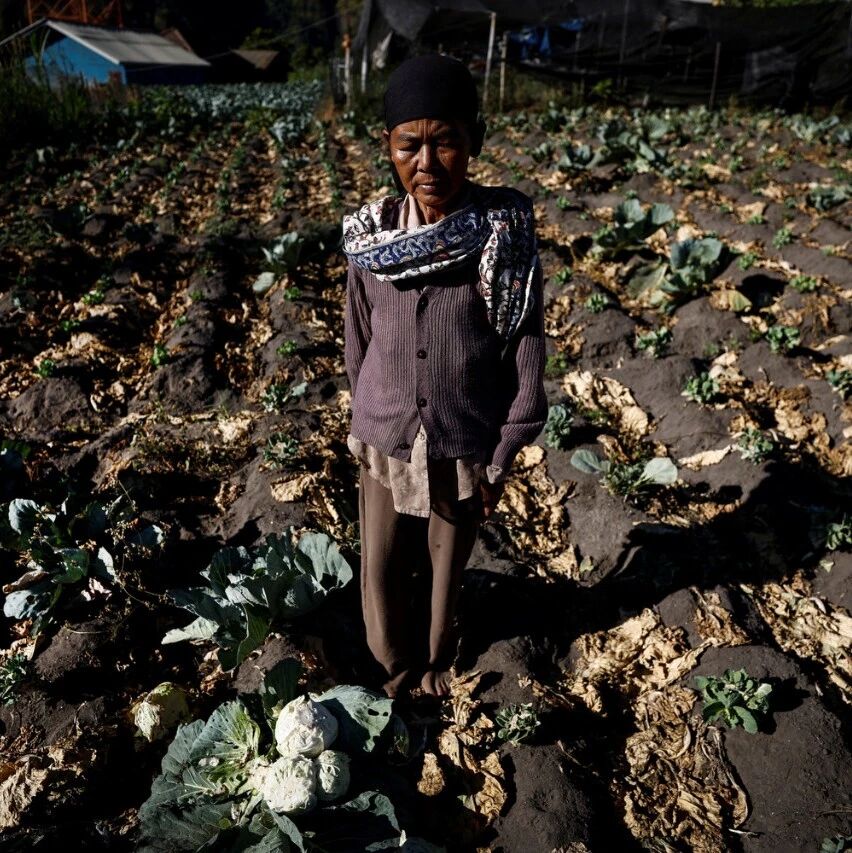The Global Cooperation Barometer reveals that, amid escalating geopolitical conflicts and growing instability, international collaboration remains at a sustained low point. However, positive trends in climate finance, health, and innovation offer glimmers of hope for renewed cooperation.
In the face of an increasingly turbulent environment, leaders must actively embrace "unstructured" collaboration, fostering dynamic, solution-driven decision-making that not only delivers tangible results but also strengthens trust.
Artificial intelligence and other emerging technologies are reshaping the global landscape—but they’re also sparking a profound transformation. To unlock technology’s full potential while mitigating its risks, collaborative efforts from all stakeholders are essential.
For insights on the barometer and to read the simultaneously released report, please click "Read More." Stay updated on the 2025 World Economic Forum Annual Meeting by visiting the official WEF website. Don’t forget to use the hashtag #2025WinterDavos#—join the conversation on social media and share the latest updates from the event!
The World Economic Forum’s "Global Cooperation Barometer" offers a meticulous assessment of the current state of global collaboration, highlighting that today’s world is grappling with intensifying competition and rising conflicts. At the same time, it underscores that leaders have the opportunity to innovate new forms of cooperation across multiple sectors, collectively driving progress forward. Against the backdrop of geopolitical shifts, technological advancements, and socio-political upheavals, the Forum’s latest annual flagship report emphasizes the urgent need to tackle shared challenges—and provides leaders with a vision of how global cooperation can shape a transformative future.

"The 2025 Global Cooperation Barometer," jointly developed by the World Economic Forum and McKinsey & Company, uses 41 indicators to assess the current state of global cooperation. It aims to help leaders gain a deeper understanding of global collaboration through five key pillars: Trade and Capital, Innovation and Technology, Climate and Natural Capital, Health and Well-being, and Peace and Security. This year marks the Forum’s second annual release of the "Global Cooperation Barometer," which, building on newly incorporated data, provides an updated snapshot of global cooperation—with a particular focus on the implications brought about by the rise of new technologies.
"Right at the moment the Barometer is released, the global landscape is facing significant turmoil, with new governments in many countries already crafting their plans for the coming year—and beyond—during their respective terms," said Børge Brende, President and CEO of the World Economic Forum. "The Barometer reveals that collaboration isn’t just essential for tackling major economic, environmental, and technological challenges; it’s also a practical approach when uncertainty and volatility are on the rise."
"Bob Sternfels, Global Managing Partner at McKinsey & Company, said, 'The second edition of the Global Collaboration Barometer focuses on the current state of cooperation while highlighting future trends in the age of new technologies. Whether it’s driving global innovation, improving global health, fostering global prosperity, or enhancing resilience worldwide, no single entity can achieve these goals alone. Although leaders may hold differing views on certain issues, there remains a critical need for entirely new mechanisms to collaborate effectively on high-priority initiatives—and history over the past few years has shown that striking this balance is entirely possible.'"
The newly released barometer highlights that global cooperation is at a critical juncture. According to the report's analysis, after a decade of positive momentum—and even surpassing pre-pandemic levels—global collaboration has now stalled overall.
The barometer's"Peace and Security"The pillar scores have plummeted sharply over the past seven years, driven by intensifying geopolitical competition and conflict, which have severely undermined global collective security. Over the past year, geopolitical tensions—and the resulting humanitarian crises—have reached unprecedented levels, fueled by crises in regions such as the Middle East, Ukraine, and Sudan.
The broadly stable cooperative order of the post-Cold War era is increasingly being replaced by a more fragmented landscape—but from climate action to technology governance, solutions to these pressing challenges remain deeply interconnected. This study reveals that, despite global security crises, collaboration continues across multiple domains, including vaccine distribution, scientific research, and renewable energy development, setting an inspiring example for future cooperation.

The "Peace and Security" pillar has seen a significant decline in recent years, but the survey's other four key pillars remain resilient—and are even revealing new opportunities for international cooperation.
Innovation and Technology:In cutting-edge technology fields like semiconductors, geopolitical competition is intensifying. Yet, despite this, global collaboration on technology and innovation continued to advance in 2023—thanks in part to the ongoing digital transformation of the global economy. This collaborative momentum has fueled the adoption of new technologies, driven a significant surge in critical mineral supplies, led to a corresponding drop in lithium-battery prices, and even sparked a rebound in student mobility. However, the rapid disruptions brought about by emerging technologies such as artificial intelligence are reshaping the global landscape, raising the specter of new frontiers in geopolitical strategic competition—and even igniting the possibility of an "AI arms race." To unlock technology's immense potential while managing these risks effectively, cooperative leadership and inclusive strategies will prove essential.
Climate and Natural Capital:Collaboration to achieve climate goals has intensified over the past year, with increased financial flows and trade in low-carbon technologies such as solar, wind, and electric vehicles. However, as global emissions continue to rise, urgent action is needed to meet our net-zero targets. Strengthening global cooperation is essential—it can help scale up technology deployment and secure the necessary funding to make our climate goals a reality by 2030.
Health and Wellness:Some health indicators, including life expectancy, have continued to improve since the pandemic, though overall progress has slowed compared to pre-2020 levels. Cross-border aid and pharmaceutical research activities have declined, while trade in health supplies and international regulatory cooperation have stalled. Nevertheless, key health metrics such as child and maternal mortality rates remain strong. Given rising health risks and an aging population, leaders must invest in strengthening global collaboration to bolster public health and build sustainable health systems.
Trade and Capital:In 2023, indicators related to goods and services, trade, capital flows, and people movement showed a mixed picture. While merchandise trade declined by 5%, primarily due to slower growth in China and other developing economies—and amid ongoing global fragmentation that continued to dampen East-West trade—global flows of services, capital, and people nevertheless demonstrated remarkable resilience. Foreign direct investment surged, particularly in strategic sectors such as semiconductors and green energy. Meanwhile, labor migration and remittances staged a strong rebound, surpassing pre-pandemic levels.
Looking ahead, even as competition intensifies, leaders must continue exploring paths of collaboration—after all, tangible outcomes are crucial for maintaining public trust and support. The report underscores the urgent need to embrace adaptive, solution-driven leadership in response to today’s global uncertainties. By shifting toward collaborative, problem-solving approaches, leaders can rebuild trust, catalyze meaningful change, and unlock fresh opportunities—ultimately driving collective progress, enhancing resilience, and equipping themselves to navigate the complex challenges of the years ahead.
Research Methodology for the Global Cooperation Barometer
The "Global Cooperation Barometer" was first launched in 2024, aiming to assess global collaboration across five interconnected dimensions: Trade & Capital, Innovation & Technology, Climate & Natural Capital, Health & Well-being, and Peace & Security. The barometer’s 41 indicators are categorized into two main groups: Cooperation Action Indicators—providing concrete evidence of collaborative efforts, such as trade volumes, capital flows, or intellectual property exchanges—and Outcome Indicators—measures designed to gauge progress, like reductions in greenhouse gas emissions or increases in life expectancy. The barometer draws on data from 2012 to 2023, using 2020 as the baseline year to highlight shifts before and after the COVID-19 pandemic. Building on this foundation, the data undergoes normalization to facilitate meaningful comparative analysis—for instance, comparing financial metrics with global GDP or aligning migration figures against population levels—before being averaged equally across each pillar and between them.
Regarding the 2025 World Economic Forum Annual Meeting
The 2025 World Economic Forum Annual Meeting will take place from January 20 to 24 in Davos-Klosters, Switzerland, bringing together global leaders to explore the theme "Collaboration in the Age of Intelligence." The event will focus on fostering new partnerships and inspiring fresh insights, aiming to shape a more sustainable and inclusive future amid rapidly evolving technological advancements. Key areas of emphasis include reimagining growth, shaping industries for the intelligent era, investing in people, safeguarding our planet, and rebuilding trust. For more details about the annual meeting, visit the World Economic Forum website.
Feel free to share this on WeChat Moments; please leave a comment below the post if you’d like to republish.
The World Economic Forum is an independent and neutral platform dedicated to bringing together diverse perspectives to discuss critical global, regional, and industry-specific issues.
Follow us on Weibo, WeChat Video Channels, Douyin, and Xiaohongshu!
"World Economic Forum"



